- Home
- Alice Walker
Horses Make a Landscape Look More Beautiful Page 4
Horses Make a Landscape Look More Beautiful Read online
Page 4
When I listen to her talk about women’s rights
children’s rights
men’s rights
I think of the long line of Americans
who should have been president, but weren’t.
Imagine Crazy Horse as president. Sojourner Truth.
John Brown. Harriet Tubman. Black Elk or Geronimo.
Imagine President Martin Luther King confronting
the youthful “Oppie” Oppenheimer. Imagine President
Malcolm X going after the Klan. Imagine President Stevie
Wonder dealing with the “Truly Needy.”
Imagine President Shirley Chisholm, Ron Dellums or
Sweet Honey in the Rock
dealing with Anything.
It is imagining to make us weep with frustration,
as we languish under real estate dealers, killers,
and bad actors.
Gloria makes me aware of how much we lose by denying,
exiling or repressing parts of ourselves
so that other parts,
grotesque and finally lethal
may creep into the light.
“Women must seize the sources of reproduction,” she says,
knowing her Marx and her Sanger too.
Surely the earth can be saved for Gloria.
These days I think of Jan,
who makes the most exquisite goblets
—and plates and casseroles.
Her warm hands steady on the cool
and lively clay,
her body attentive and sure, bending over the wheel.
I could watch her work for hours—
but there is never time. On one visit I see the bags
of clay. The next visit, I see pale and dusty molds,
odd pieces of hardening handles and lids. On another,
I see a stacked kiln. On another, magical objects of use
splashed with blue, streaked with black and red.
She sits quietly beside her creations
at countless fairs
watching without nostalgia
their journeys into the world.
She makes me consider how long
people have been making things. How wise
and thoughtful people often are.
A world without Jan would be like her house
when she is someplace else—gray, and full of furniture
I’ve never seen before.
Our dream is to sit on a ridge top for days
and reminisce
about the anti-nuke movement.
The time we were together
at a women’s music festival, and Diablo Canyon
called her.
The more comic aspects
of her arrest.
There is a way that she says “um hum” that means a lot
to me.
Surely the earth can be saved for Jan.
These days I think of Rebecca.
“Mama, are you a racist?” she asks.
And I realize I have badmouthed white people
once too often
in her presence.
Years ago I would have wondered
how white people have managed to live
all these years
with this question
from their children;
or, how did they train their children
not to ask?
Now I think how anti-racism
like civil rights or
affirmative action
helps white people too.
Even if they are killing us
we have to say, to try to believe,
it is the way they are raised,
not genetics,
that causes their bizarre, death-worshiping
behavior.
“If we were raised like white people,
to think we are superior to everything else
God made, we too would behave the way
they do,” say the elders.
And: “White folks could be people of color
if they’d only relax.”
Besides, my daughter declares
her own white father “Good,” and reminds me
it is often black men
who menace us on
the street.
Talking to Rebecca about race almost always
guarantees a headache.
But that is a small price
for the insight and clarity
she brings.
Surely the earth can be saved for Rebecca.
These days I think of John, Yoko and Sean Lennon.
Whenever I listen
to “Working-Class Hero,”
I laugh: because John says “fucking”
twice,
and it is always a surprise
though I know the record by heart.
I like to imagine
him putting Sean to bed
or exchanging his own hard,
ass-kicking boots
for sneakers.
I like to imagine Yoko
making this white boy deal with the word NO
for the first time.
And the word YES forever.
I like to think of this brave
and honest
new age family
that dared to sing itself
even as anger, fear, sadness and death
squeezed its vocal cords.
Yoko knows the sounds of a woman coming
are finer by far than those of a B-52
on a bombing raid.
And a Kotex plastered across
a man’s forehead at dinner
can indicate serenity.
Hold on world
World hold on
It’s gonna be all right
You gonna see the light
(Ohh) when you’re one
Really one
You get things done
Like they never been done
So hold on.*
Surely the earth can be saved
by all the people
who insist
on love.
Surely the earth can be saved for us.
* From “Hold On John” by John Lennon.
A Biography of Alice Walker
Alice Walker (b. 1944), one of the United States’ preeminent writers, is an award-winning author of novels, stories, essays, and poetry. Walker was the first African-American woman to win the Pulitzer Prize for fiction, which she won in 1983 for her novel The Color Purple, also a National Book Award winner. Walker has also contributed to American culture as an activist, teacher, and public intellectual. In both her writing and her public life, Walker has worked to address problems of injustice, inequality, and poverty.
Walker was born at home in Putnam County, Georgia, on February 9, 1944, the eighth child of Willie Lee Walker and Minnie Tallulah Grant Walker. Willie Lee and Minnie Lou labored as tenant farmers, and Minnie Lou supplemented the family income as a house cleaner. Though poor, Walker’s parents raised her to appreciate art, nature, and beauty. They also taught her to value her education, encouraging her to focus on her studies. When she was a young girl, Alice’s brother accidentally shot her in the eye with a BB, leaving a large scar and causing her to withdraw into the world of art and books. Walker’s dedication to learning led her to graduate from her high school as valedictorian. She was also homecoming queen.
Walker began attending Spelman College in Atlanta in 1961. There she formed bonds with professors such as Staughton Lynd and Howard Zinn, teachers that would inspire her to pursue her talent for writing and her commitment to social justice. In 1964 she transferred to Sarah Lawrence College, where she completed a collection of poems in her senior year. This collection would later become her first published book, Once (1965). After college, Walker became deeply engaged with the civil rights movement, often joining marches and voter registration drives in the South. In 1965 she met Melvyn Rosenman Leventhal, a civil rights lawyer, whom she would marry in 1
967 in New York. The two were happy, before the strain of being an interracial couple in Mississippi caused them to separate in 1976. They had one child, Rebecca Grant Walker Leventhal.
In the late sixties through the seventies, Walker produced several books, including her first novel, The Third Life of Grange Copeland (1970), and her first story collection, In Love & Trouble (1973). During this time she also pursued a number of other ambitions, such as working as an editor for Ms. magazine, assisting anti-poverty campaigns, and helping to bring canonical novelist Zora Neale Hurston back into the public eye.
With the 1982 release of her third novel, The Color Purple, Walker earned a reputation as one of America’s premier authors. The book would go on to sell fifteen million copies and be adapted into an Academy Award–nominated film by director Steven Spielberg. After the publication of The Color Purple, Walker had a tremendously prolific decade. She produced a number of acclaimed novels, including You Can’t Keep a Good Woman Down (1982), The Temple of My Familiar (1989), and Possessing the Secret of Joy (1992), as well as the poetry collections Horses Make a Landscape Look More Beautiful (1985) and Her Blue Body Everything We Know (1991). During this time Walker also began to distinguish herself as an essayist and nonfiction writer with collections on race, feminism, and culture, including In Search of Our Mothers’ Gardens (1983) and Living by the Word (1988). Another collection of poetry, Hard Times Require Furious Dancing, was released in 2010, followed by her memoir, The Chicken Chronicles, in the spring of 2011.
Currently, Walker lives in Northern California, and spends much of her time traveling, teaching, and working for human rights and civil liberties in the United States and abroad. She continues to write and publish along with her many other activities.
Alice’s parents, Minnie Tallulah Grant and Willie Lee Walker, in the 1930s. Willie Lee was brave and hardworking, and Minnie Lou was strong, thoughtful, and kind—and just as hardworking as her husband. Alice remembers her mother as a strong-willed woman who never allowed herself or her children to be cowed by anyone. Alice cherished both of her parents “for all they were able to do to bring up eight children, under incredibly harsh conditions, to instill in us a sense of the importance of education, for instance, the love of beauty, the respect for hard work, and the freedom to be whoever you are.”
Harlem Renaissance writer Zora Neale Hurston during her days in New York City. Hurston, who fell into obscurity after her death, had a profound influence on Walker. Indeed, Walker’s 1975 essay, “In Search of Zora Neale Hurston,” played a crucial role in resurrecting Hurston’s reputation as a major figure in American literature. Walker paid further tribute to her “literary aunt” when she purchased a headstone for Hurston’s grave, which had gone unmarked for over a decade. The inscription on the tombstone reads, “A Genius of the South.”
Alice (front) in Kenya in 1965. She traveled there to help build the school pictured in the background as part of the Experiment in International Living Program. It was here that Walker first witnessed the practice of female genital mutilation, a practice that she has since worked to eradicate.
Walker with her former husband, Melvyn Leventhal, a Brooklyn native. The couple met in Mississippi and bonded over their mutual involvement in the struggle for civil rights—he as a budding litigator for the NAACP Legal Defense and Education Fund, she as one of the organization’s workers responsible for taking depositions from disenfranchised black voters. Despite disapproval from their respective families, Alice and Melvyn wed in New York City in 1967. They then returned to Mississippi, where they were often subjected to threats from the Ku Klux Klan. Eventually the pressures of living in the violent, segregated state, coupled with their divergent career paths, caused the pair to drift apart. They divorced amicably in 1976.
Alice and Melvyn with their daughter, Rebecca, who would also grow up to become a writer, in 1970. Alice had just published her debut novel, The Third Life of Grange Copeland, which garnered significant praise and prompted these perceptive words from critic Kay Bourne: “Most poignant is the relating of the lives of black women, who were ready and strong and trusted, only to so often be abused by the conditions of their oppressed lives and the misdirected anger of their men.” Alice characterized it as “an incredibly difficult novel to write,” since it forced her to confront the violence African Americans inflicted on each other in the face of white oppression.
Alice and her partner of thirteen years, Robert L. Allen, a noted scholar of American history, pose for a portrait. The picture was taken at a celebration the couple hosted after the publication of I Love Myself When I Am Laughing, an anthology of Zora Neale Hurston’s writings that Alice edited.
Walker being taken into custody at a 1980s demonstration against weapons shipments sent from Concord, California, to Central and South America. Her shirt reads: “Remember Port Chicago.” This is a reference to an explosion that killed hundreds of sailors stationed in Concord during World War II—most of them black—while they were loading munitions onto a cargo vessel. Walker has remained a dedicated political activist since the 1960s, when she returned to the South after graduating from Sarah Lawrence to help register black voters. Recently, she was arrested with fellow California-based author Maxine Hong Kingston in Washington, DC, during a protest against the U.S. invasion of Iraq. “My activism—cultural, political, spiritual—is rooted in my love of nature and my delight in human beings,” Walker explains.
Walker with celebrated historian Howard Zinn, who taught one of her classes at Spelman College, in the 1960s. Walker developed a lifelong friendship with Zinn and considered him one of her mentors. The two shared a passion for political activism and a desire to shed light on the conditions of the oppressed. “I was Howard’s student for only a semester,” she says, “but in fact, I have learned from him all my life. His way with resistance—steady, persistent, impersonal, often with humor—is a teaching I cherish.”
A photograph of Walker taken in 2007 at a ceremony for her dog, Marley, and her cat, Surprise. “Marley appeared,” she says, but “Surprise slept through it!”
Walker at her country home in Northern California, where she has lived since the early 1980s. “What attracted me to this part of the world—Northern California—is really the resemblance to Georgia that it has,” she once told an interviewer. “This has been a very good place for me,” she went on, “a very good place for dreaming.”
Walker writing on the front porch of her California home. She has lived in many different places throughout the world—including Africa, Hawaii, and Mexico—and finding a place to write has always been a matter of utmost importance for her. She once said that “books and houses” are what she “longed for most as a child.” Years after her tenant farming childhood, Walker is happy to have a place she can truly call home.
All rights reserved under International and Pan-American Copyright Conventions. By payment of the required fees, you have been granted the non-exclusive, non-transferable right to access and read the text of this ebook onscreen. No part of this text may be reproduced, transmitted, downloaded, decompiled, reverse engineered, or stored in or introduced into any information storage and retrieval system, in any form or by any means, whether electronic or mechanical, now known or hereinafter invented, without the express written permission of the publisher.
A number of these poems were previously published in Callaloo, Family Circle, Freedomways, Hurricane Alice, Ms., and Vanity Fair.
The lyrics quoted in “These Days” are from “Hold On John” (John Lennon) © 1971 Northern Songs Limited. All rights for the U.S.A. and Mexico controlled by Maclen Music, Inc., c/o ATV Music Corp. Used by permission. All rights reserved.
copyright © 1984, 1983, 1981, 1980, 1979 by Alice Walker
cover design by Milan Bozic
978-1-4532-2404-5
This edition published in 2011 by Open Road Integrated Media
180 Varick Street
New York, NY 10014
www.openroadmedia.com
EBOOKS BY ALICE WALKER
FROM OPEN ROAD MEDIA
Available wherever ebooks are sold
FIND OUT MORE AT WWW.OPENROADMEDIA.COM
follow us: @openroadmedia and Facebook.com/OpenRoadMedia
Videos, Archival Documents, and New Releases
Sign up for the Open Road Media newsletter and get news delivered straight to your inbox.
FOLLOW US:
@openroadmedia and
Facebook.com/OpenRoadMedia
SIGN UP NOW at
www.openroadmedia.com/newsletters

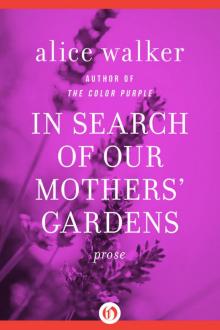 In Search of Our Mothers' Gardens: Prose
In Search of Our Mothers' Gardens: Prose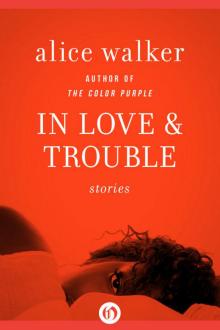 In Love and Trouble: Stories of Black Women: Stories of Black Women
In Love and Trouble: Stories of Black Women: Stories of Black Women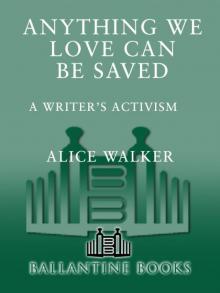 Anything We Love Can Be Saved
Anything We Love Can Be Saved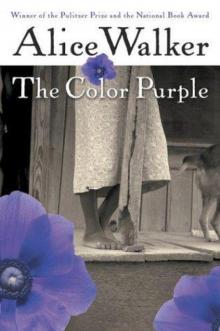 The Color Purple
The Color Purple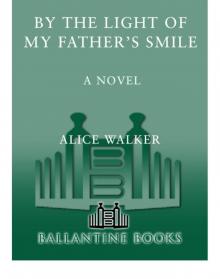 By the Light of My Father's Smile
By the Light of My Father's Smile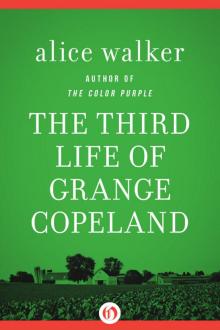 The Third Life of Grange Copeland
The Third Life of Grange Copeland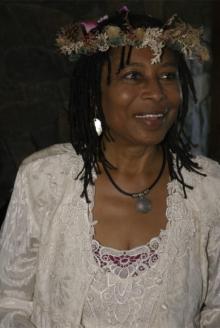 You Can't Keep a Good Woman Down
You Can't Keep a Good Woman Down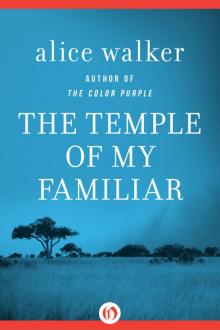 The Temple of My Familiar
The Temple of My Familiar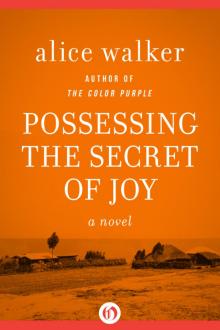 Possessing the Secret of Joy
Possessing the Secret of Joy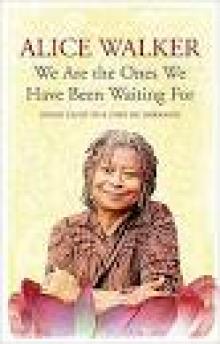 We Are the Ones We Have Been Waiting For
We Are the Ones We Have Been Waiting For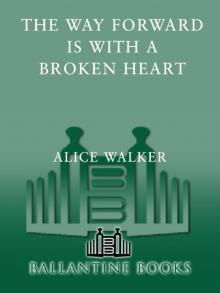 The Way Forward Is With a Broken Heart
The Way Forward Is With a Broken Heart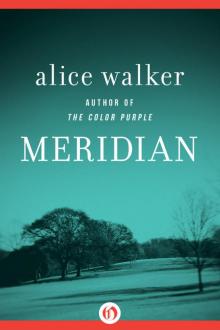 Meridian
Meridian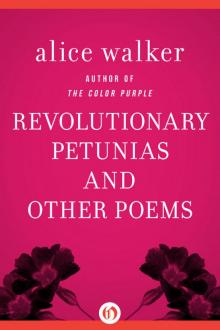 Revolutionary Petunias
Revolutionary Petunias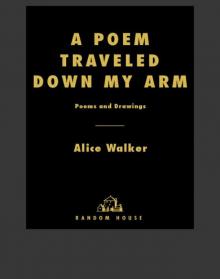 A Poem Traveled Down My Arm
A Poem Traveled Down My Arm Once
Once Horses Make a Landscape Look More Beautiful
Horses Make a Landscape Look More Beautiful Living by the Word
Living by the Word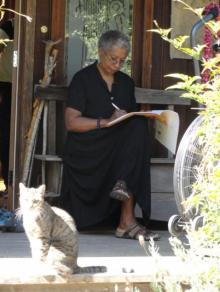 In Love and Trouble
In Love and Trouble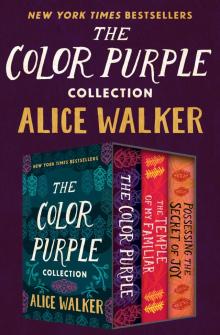 The Color Purple Collection
The Color Purple Collection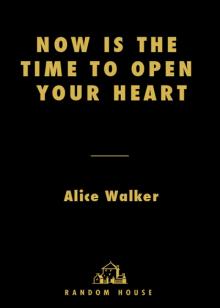 Now Is the Time to Open Your Heart
Now Is the Time to Open Your Heart Color Purple Collection
Color Purple Collection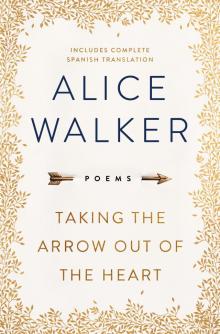 Taking the Arrow Out of the Heart
Taking the Arrow Out of the Heart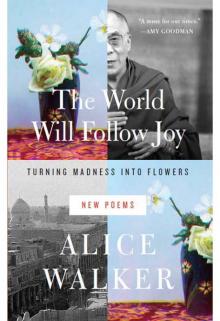 The World Will Follow Joy
The World Will Follow Joy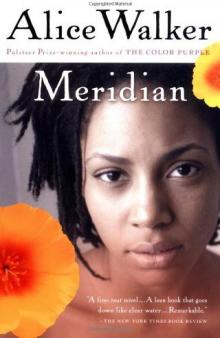 Meridian (1976)
Meridian (1976)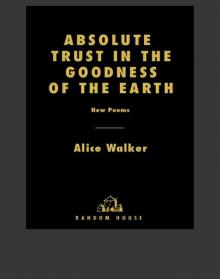 Absolute Trust in the Goodness of the Earth
Absolute Trust in the Goodness of the Earth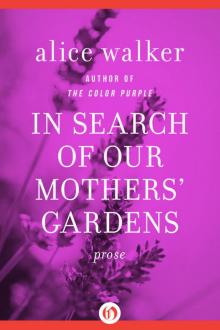 In Search of Our Mothers' Gardens
In Search of Our Mothers' Gardens